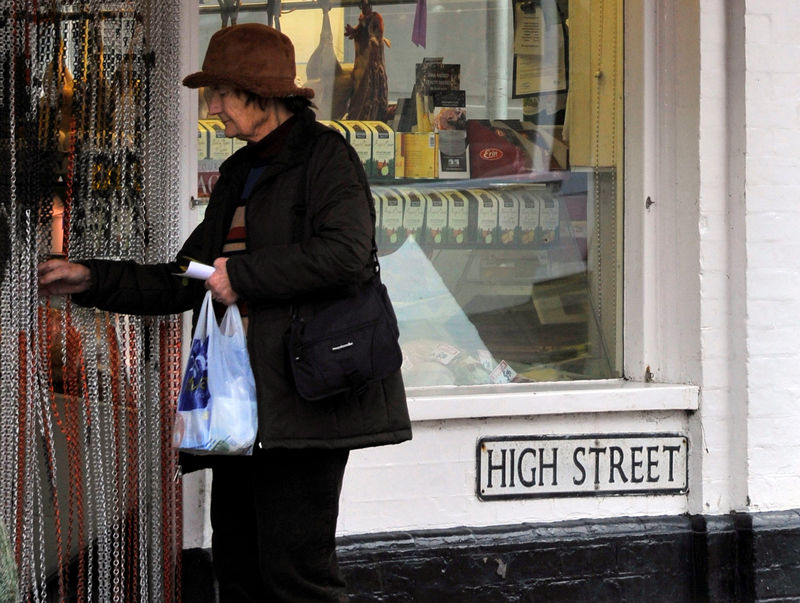Gold prices set for weekly gains on dovish Fed outlook; silver near record high
By David Milliken and Alistair Smout
LONDON (Reuters) - British retail sales shrank at the fastest rate in nearly seven years during the past three months, despite a pickup in February, adding to signs that a major driver of Britain's economy is faltering after last year's Brexit vote.
Major clothing retailer Next (L:NXT) underlined the shift, saying it was "extremely cautious" about its prospects, partly due to higher inflation, after reporting its first fall in profits since 2009.
Sterling's fall last year of more than 15 percent against the U.S. dollar is causing British inflation to accelerate at its fastest rate in more than four years, and higher fuel prices are also squeezing consumers.
Retail sales in the three months to February contracted by 1.4 percent - a decline not seen since March 2010 - after a 0.5 percent fall in the three months to January, according to official figures.
But in February, there were some grounds for optimism. Sales volumes jumped after three months of falls, beating market expectations and pushing sterling to a one-month high against the dollar.
Monthly retail data is often volatile, however, and analysts tend to focus on the last three months.
"The underlying trend suggests that rising petrol prices in particular have had a negative effect on the overall quantity of goods bought over the last three months," ONS statistician Kate Davies said.
Fuel in February cost 19 percent more than a year earlier, boosted by higher global prices as well as the weaker pound.
Unless growth in March is unprecedentedly strong, retail sales looked set to drag on the overall economy in the first quarter of 2017.
HSBC economist Liz Martins doubted the strength in February alone -- when sales volumes rose 1.4 percent -- would continue with consumer price inflation hitting its highest in more than three years last month at 2.3 percent.
"We could already be in negative real income growth territory. Against this backdrop, we stay cautious on the UK consumer story," she said.
Separately, human resources consultants XpertHR said major businesses planned to raise wages by about 2 percent this year -- little changed from 2016 and probably below inflation in 2017.
MIXED SIGNALS
The picture for consumer spending remains mixed.
The Confederation of British Industry said moderate sales growth continued in March and was expected to improve further, though spending was still a bit below average for the time of year.
Moreover, retail sales only represent about a third of overall consumer spending in Britain.
The Bank of England said on Wednesday that spending on eating out and domestic tourism were doing well. Next also said some of its concerns reflected how Britons are spending more money on things other than clothes.
The BoE expects stronger business investment and exports to compensate for weaker retail sales this year, ensuring overall growth is little changed from 2016.
But BoE deputy governor Ben Broadbent said on Thursday that exporters were probably enjoying only a temporary "sweet spot" before Britain's departure from the EU in two years' time, which could make trade harder.
"Either the currency market is right about the consequences of Brexit, in which case the UK's trading relationships will become less favourable; or it's wrong, in which case sterling is likely to recover," he said in a speech at Imperial College.
